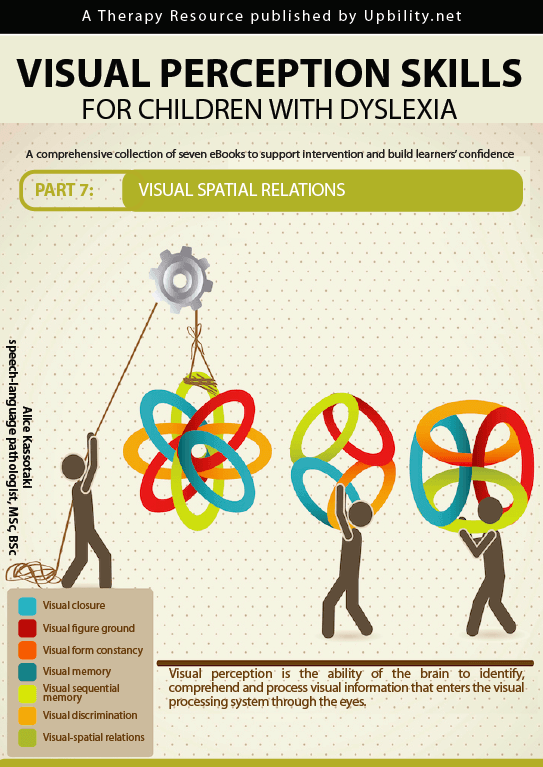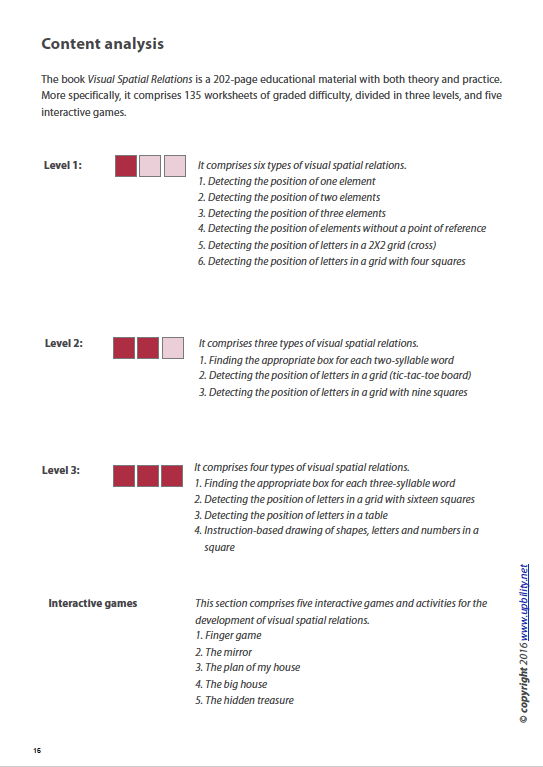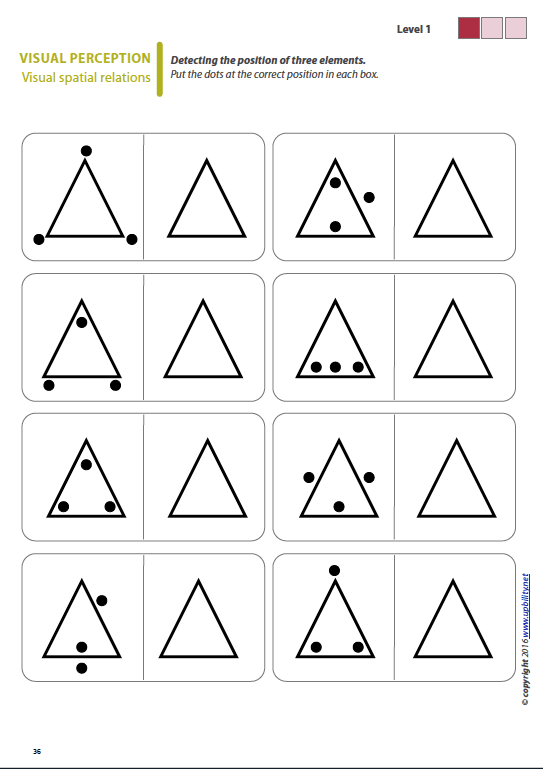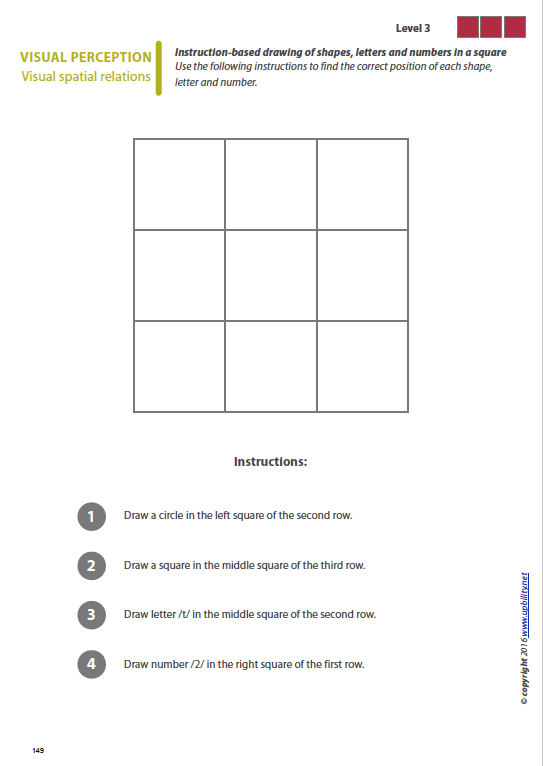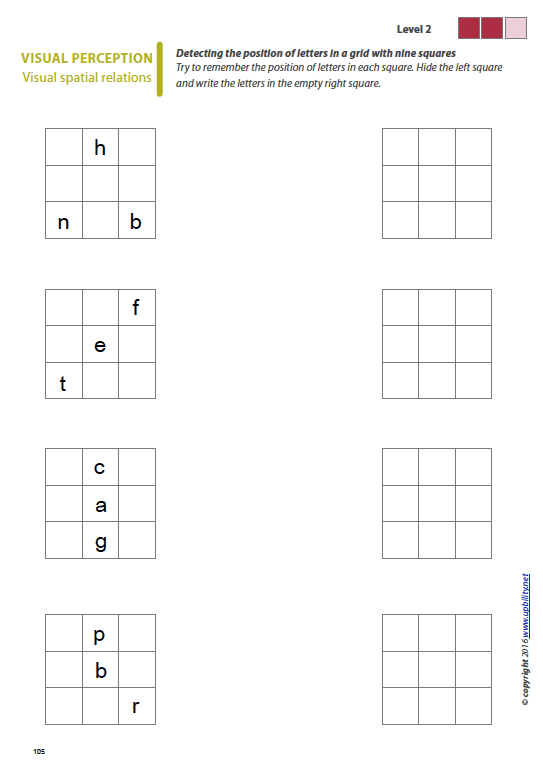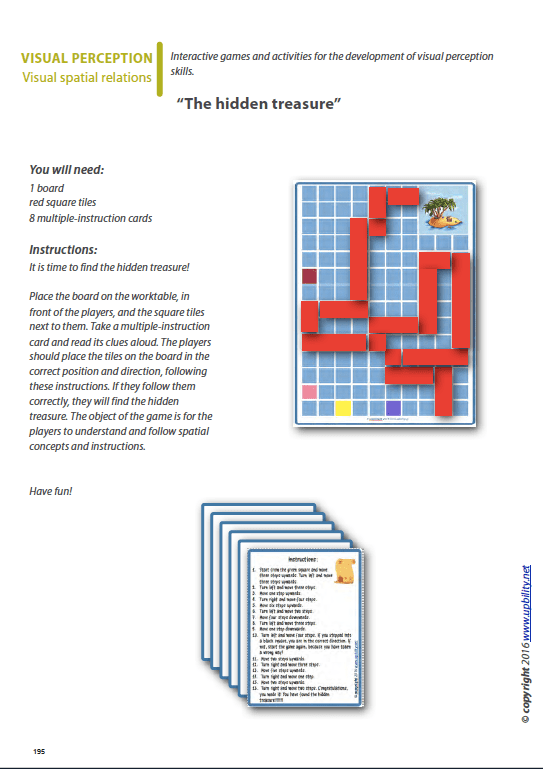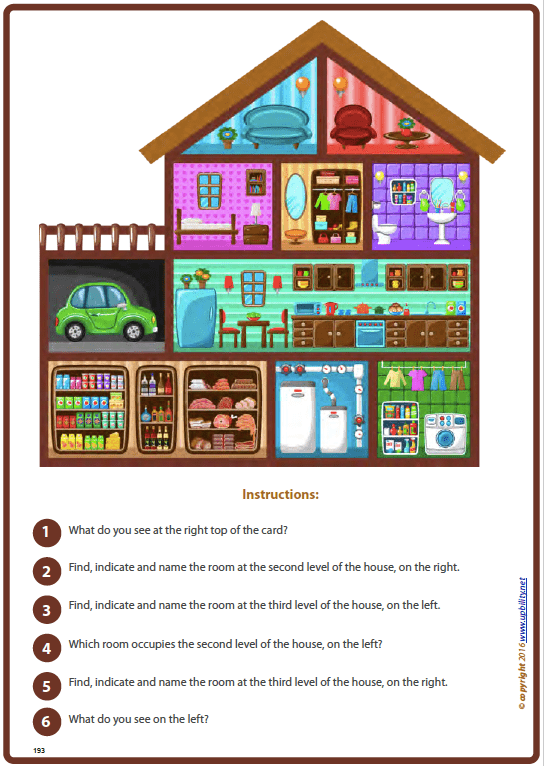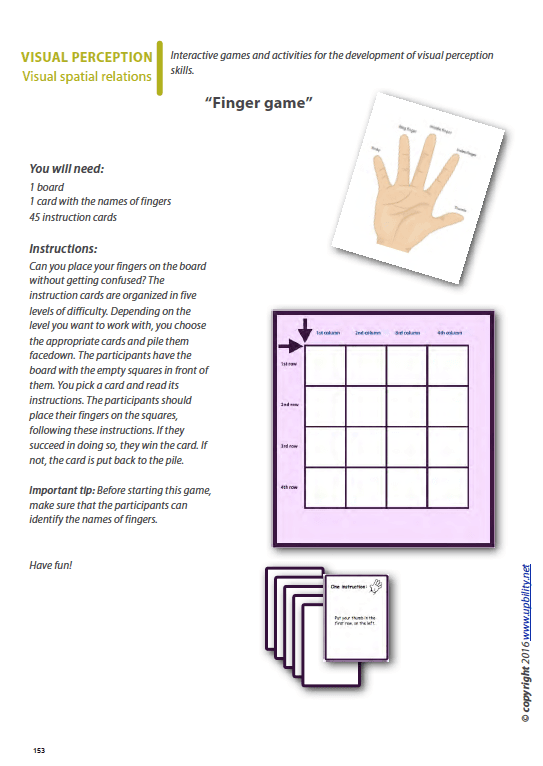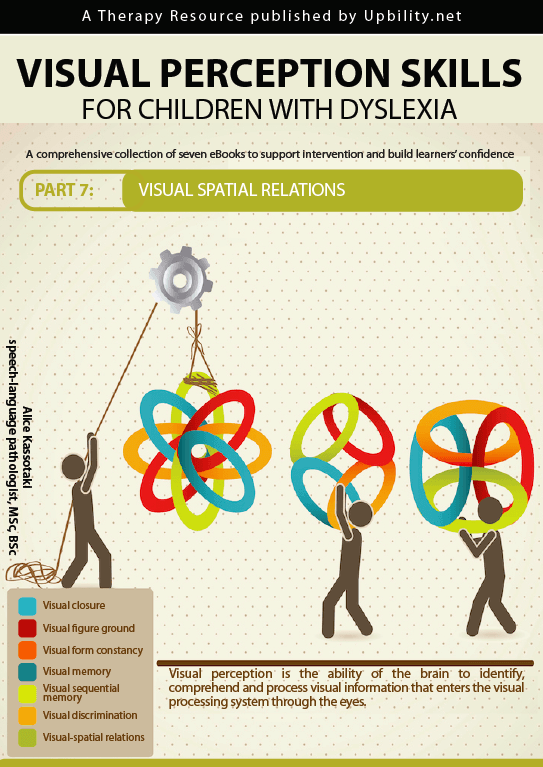Visual Perception Skills for Children with Dyslexia | PART 7: Visual Spatial Relations
Available
Visual Perception Skills for Children with Dyslexia | PART 7: Visual Spatial Relations - is backordered and will ship as soon as it is back in stock.
Description
Description
Visual Spatial Relations
Age Group : 6+
Laid out in a colourful and easy-to-use format, it is addressed to special education needs teachers, occupational therapists, logopedists, parents and schoolteachers who aim to support their children in developing and strengthening their skills. It introduces a set of games and activities that build and enhance visual perceptual skills in an enjoyable and interactive way!
Visual spatial awareness denotes the ability to understand spatial concepts and directions, necessary for interacting with the outside world. It also involves processing outside information and reasoning with it through visual representation in the mind. Along with quantitative and verbal ability, it plays a key role in developing expertise in learning and work settings as well as in determining orientation, laterality and directionality. People with visuospatial deficits have poor performance in sports and suffer from coordination and balance problems. They can also find it difficult to perform rhythmic activities. Furthermore, they are clumsy and tend to reverse forms and letters / syllables, including “o” and”8” or “ma” and am”.
The book includes, inter alia:
- 135 worksheets;
- activities aiming at detecting elements with or without a point of reference;
- activities aiming at detecting letters in several types of grids and tables;
- activities aiming at finding the appropriate boxes for two-syllable and three-syllable words;
- activities requiring learners to follow their teacher’s instructions and draw letters and numbers inside squares, as well as
- interactive games and activities.
Visual perceptual skills influence several aspects of children’s development and everyday life, ranging from (mixed) motor skills to essential life aptitudes.
Specifications
Specifications
-
Book format
-
SKU
-
Age
-
Number of pages
-
Dimensions
-
Author
-
Pagination
-
Translation & Proofreading
-
Year of publication
Contents
Contents
Author
Author
Age
School-aged children
Author
Alice Kassotaki - Speech Language Pathologist MSc, BSc
Secure Payments
All major methods accepted — fully protected from checkout to delivery.

